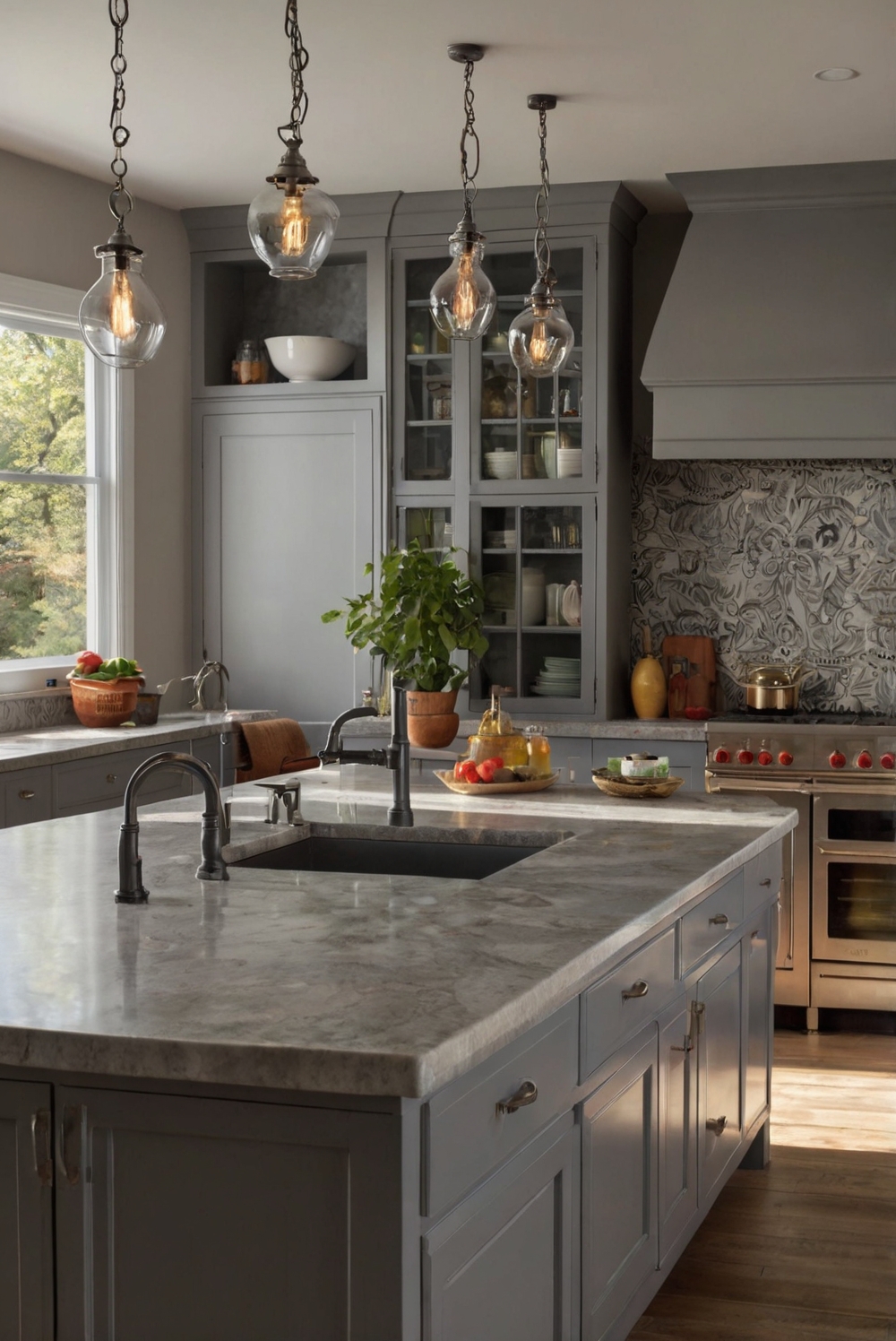Looking to enhance your kitchen with heat-resistant materials? Find out our daily interior designer routine for picking the perfect countertop materials to elevate your space!
To choose heat-resistant materials for your countertops, consider options like granite, quartz, concrete, stainless steel, or ceramic tiles. These materials are durable and can withstand high temperatures without being damaged. Granite and quartz are popular choices for kitchen countertops due to their heat resistance and stylish appearance. Concrete countertops offer a modern and industrial look, while stainless steel provides a sleek and easy-to-clean surface.
When selecting heat-resistant materials, also consider the color and aesthetics of your kitchen to ensure the countertops complement the overall design. Make sure to opt for materials that are not only heat-resistant but also easy to maintain and clean. Additionally, always follow the manufacturer’s recommendations for care and maintenance to prolong the lifespan of your countertops.
Remember, choosing the right heat-resistant material is essential for both functionality and style in your home decorating and interior design projects.
What are heat-resistant materials for countertops?
Heat-resistant materials for countertops are specially designed materials that can withstand high temperatures without getting damaged. These materials are often used in kitchens and other areas where heat exposure is common. They are essential for protecting your countertops from heat damage and ensuring their longevity.
Why is it important to choose heat-resistant materials for your countertops?
It is important to choose heat-resistant materials for your countertops to prevent them from getting damaged due to exposure to high temperatures. Countertops are often subjected to heat from hot pans, pots, and other cooking utensils, which can cause them to warp, crack, or discolor. By using heat-resistant materials, you can protect your countertops and ensure that they remain in good condition for a long time.
What are some popular heat-resistant materials for countertops?
Some popular heat-resistant materials for countertops include granite, quartz, marble, stainless steel, and porcelain. These materials are known for their ability to withstand high temperatures and are commonly used in kitchens and other areas where heat exposure is common. Each material has its unique properties and benefits, so it is essential to choose the one that best suits your needs and preferences.
What factors should you consider when choosing heat-resistant materials for your countertops?
When choosing heat-resistant materials for your countertops, there are several factors to consider, including:
- The level of heat resistance required
- The durability and maintenance of the material
- The aesthetic appeal and design of the material
- The cost of the material and installation
- The compatibility of the material with your existing kitchen decor
How can you test the heat resistance of materials for countertops?
To test the heat resistance of materials for countertops, you can use a simple heat test. Place a hot pan or pot on the material’s surface and observe how it reacts to the heat. If the material can withstand the heat without getting damaged or discolored, it is likely heat-resistant. Additionally, you can consult with the manufacturer or supplier of the material to get more information about its heat resistance properties.

